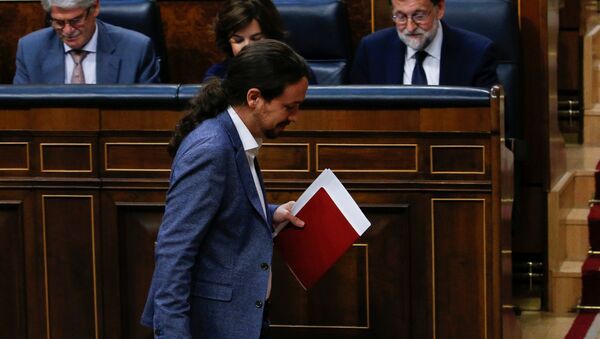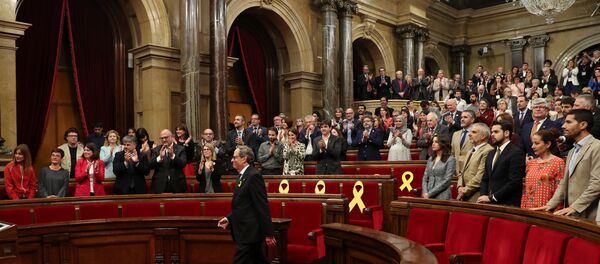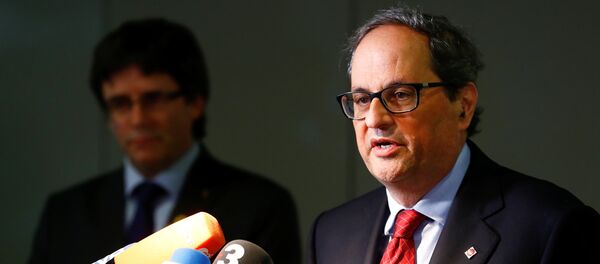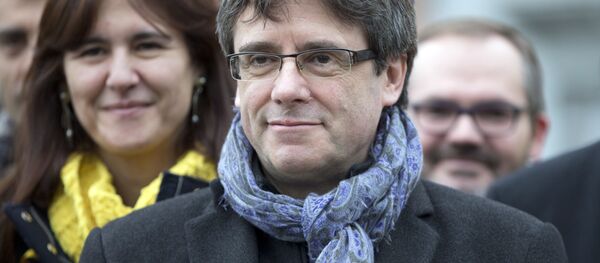"I hope that a [new Catalan] government will be in place soon, I insist [that it should be] a viable one. A government that obeys the law and will hold negotiations with us, and will work on restoring a normal political and institutional situation in our country," Rajoy said.
Madrid is ready to enter into a dialogue with the new Catalan authorities, Rajoy noted, while stressing that, to this end, the Catalan side should abide by the law and restore a normal institutional framework.
"The government, for its part, will do utmost [to maintain a dialogue] and, I hope, other sides will also honor their obligations. But in the country, which is part of the European Union, and one of the leading countries in the world, one must obey the law. The law is binding for all of us," Rajoy pointed out.
READ MORE: New Catalan President Refuses to Swear Allegiance to Spanish King, Constitution
Following the appointment, Madrid also stated that the Spanish government was the only eligible body to authorize the issuance of a decree on government appointments, and would analyze the relevant document published by the Catalan authorities.
Last week, the Catalan Parliament elected Torra, a lawmaker from Junts per Catalunya party, as the president of the autonomous region. He took an oath last Thursday but did not swear allegiance to both the Spanish king and the constitution. Torra calls himself an interim head of the Catalan government as he considers Puigdemont a true leader of the cabinet.
READ MORE: Catalan Parliament Fails to Back Torra for Region's President After 1st Vote







